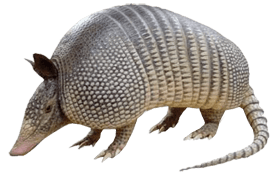Bee Hives Are Becoming Commonplace These Days In Florida
We often get calls here at Nuisance Wildlife Removal Inc. about bees invading a home or other structure on a property. The unseen hive usually has the iceberg effect, where you only see the
entrance, and not the main colony.
On this call, the bees were spotted going in and out of a hole up near the rain gutter of a two story house. Once the gutter and drain pipe were removed, you could see the damage and rotted wood, which
allowed the bees to enter the structure and start their hive.
We Had To Peel Back The Structure
Our trained technician removed some fascia board, and the hive combs a were pretty big. This hive was not a new one. It had been there for more than one season. The deeper he dug into the damaged wood, the worse things looked for the home owner.
Why Some Bees Must Be Destroyed
First things first, the bees need to be eliminated. Some people don’t understand why this is necessary, considering the world wide distress that domesticated bees are in due to CCD or “colony collapse disorder”. Bees are dying off by the billions due to everything from infections, to mites, to lack of food, pesticides and even the stress of being trucked all over the country at harvest time.
The bigger danger is that the healthy domestic bees would be contaminated by cross breeding with the AHB or Africanized Honey Bees which have now invaded our part of Florida. We can’t take the time to try and recognize whether we are dealing with the AHB or just wild honey bees. We exterminate the hive to help the Florida bee industry keep its good hives intact. In the past, a licensed bee keeper may want to take the wild hives that we find, but not any more.
Taking Out The Hive
Now that the bees have been “dusted”, we start the removal process. You can’t just leave an empty hive in place, or it will attract maggots which would feed on the dead bee larvae. Also, all that honey may eventually start running down the inside walls. That is a mess you don’t want to ever have to deal with. Bees and humans are not the only creatures who like to eat honey.
Our technicians will make sure that all traces and remnants of the hive are cleaned away, and the area is left ready for the contractor to repair any structural damage left behind by the bees.
CALL 866-263-WILD (9453)

















